Gas vs Electric Water Heater: Ultimate Comparison
Gas or electric water heater? It's a tough choice. But, don't worry. We've got you covered. In this article, we'll take a close look at the pros and cons of both options, including energy efficiency and upfront cost comparisons. Armed with this information, you'll be able to make an informed decision and choose the best water heater for your home. Let's dive in!

How do electric water heaters work?
Get to know your electric water heater: it heats water in a storage tank using submerged heating elements fueled by your home's electrical system! By monitoring the temperature, the thermostat switches off the heating elements when the water reaches your desired temp. Understand how your heater works to reap the benefits of instant hot water.

Benefits of electric water heaters
Electric water heaters offer many benefits over traditional gas-powered heaters:

Say goodbye to high energy bills with electric water heaters that offer superior cost-effectiveness compared to gas-powered units.
Enjoy easy installation and maintenance with no complicated setups required, making them perfect for busy homeowners.
Opt for a silent and energy-efficient option that saves you money without compromising on comfort.
With the versatility of electric water heaters, now you can install hot water systems in any part of your home, regardless of its size. Experience the benefits and versatility of electric water heaters today.
Disadvantages of electric water heaters
Despite their many advantages, electric water heaters also have some drawbacks that should be considered:

Electric water heaters may take longer to heat up water than gas models.
While they conserve energy better, electric units can still rack up higher bills and require a bigger initial investment.
Electric water heater units may also need replacing more often than gas models, adding to your expenses.
Consider backup plans to keep hot water flowing during power outages, since electric water heaters are dependent on electricity to run.
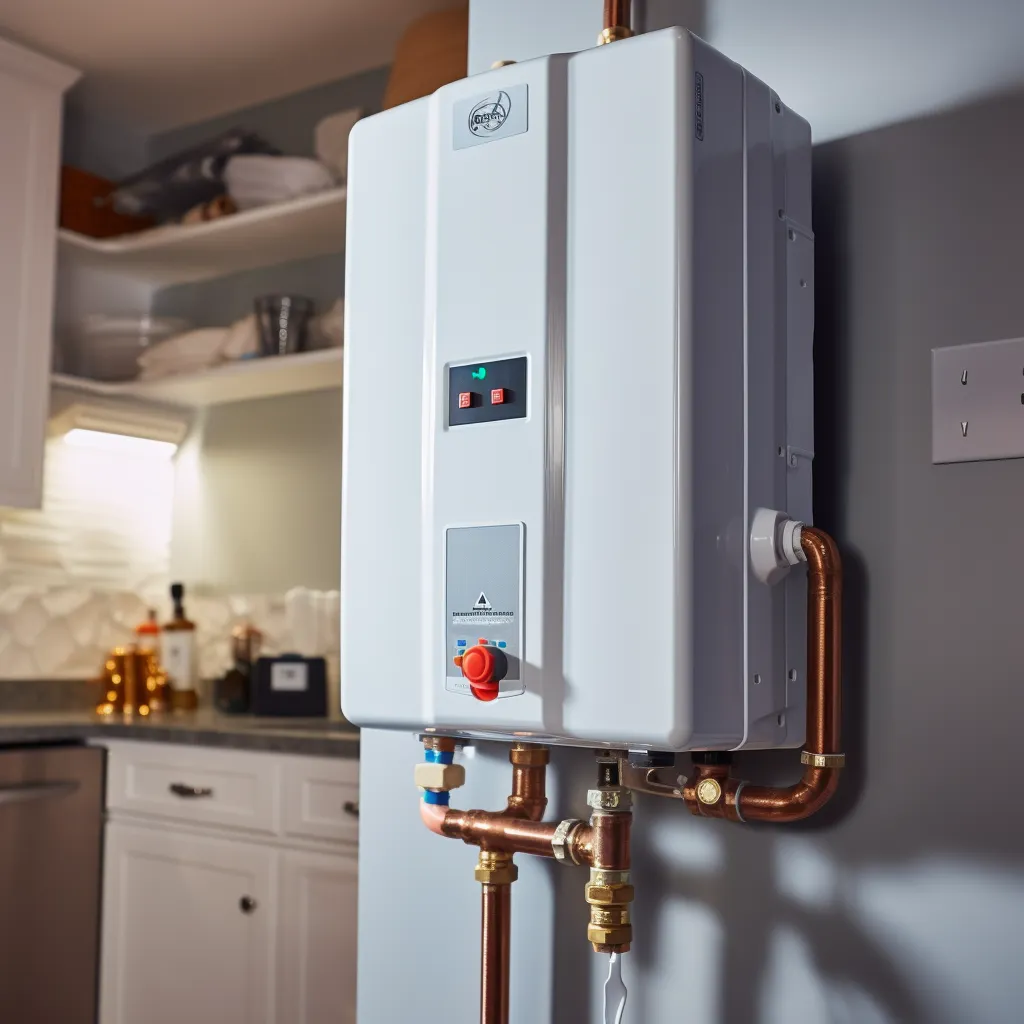

How do gas water heaters work?
Get a steady supply of hot water with gas water heaters! The process is simple: a gas burner ignites at the bottom of a large tank and heats the water. When you open a tap, the heated water flows out. And with a steady cycle of hot and cold water, you'll always have a reliable source of hot water.
Benefits of gas water heaters
Gas water heaters are a popular choice for many households due to their numerous benefits:

Looking for an affordable option to cut down your utility bills? Gas water heaters offer a smart solution with long-term savings.
Get hot water faster than ever before with their efficient heating mechanism.
Forget the hassle of frequent replacements as these reliable units come with an extended lifespan.
Save money on installation costs and enjoy easy setup with gas heaters that require minimal expertise.
They're an economical buy with a lower initial investment.

Drawbacks of gas water heaters?
Despite their many advantages, gas water heaters also have some potential downsides:
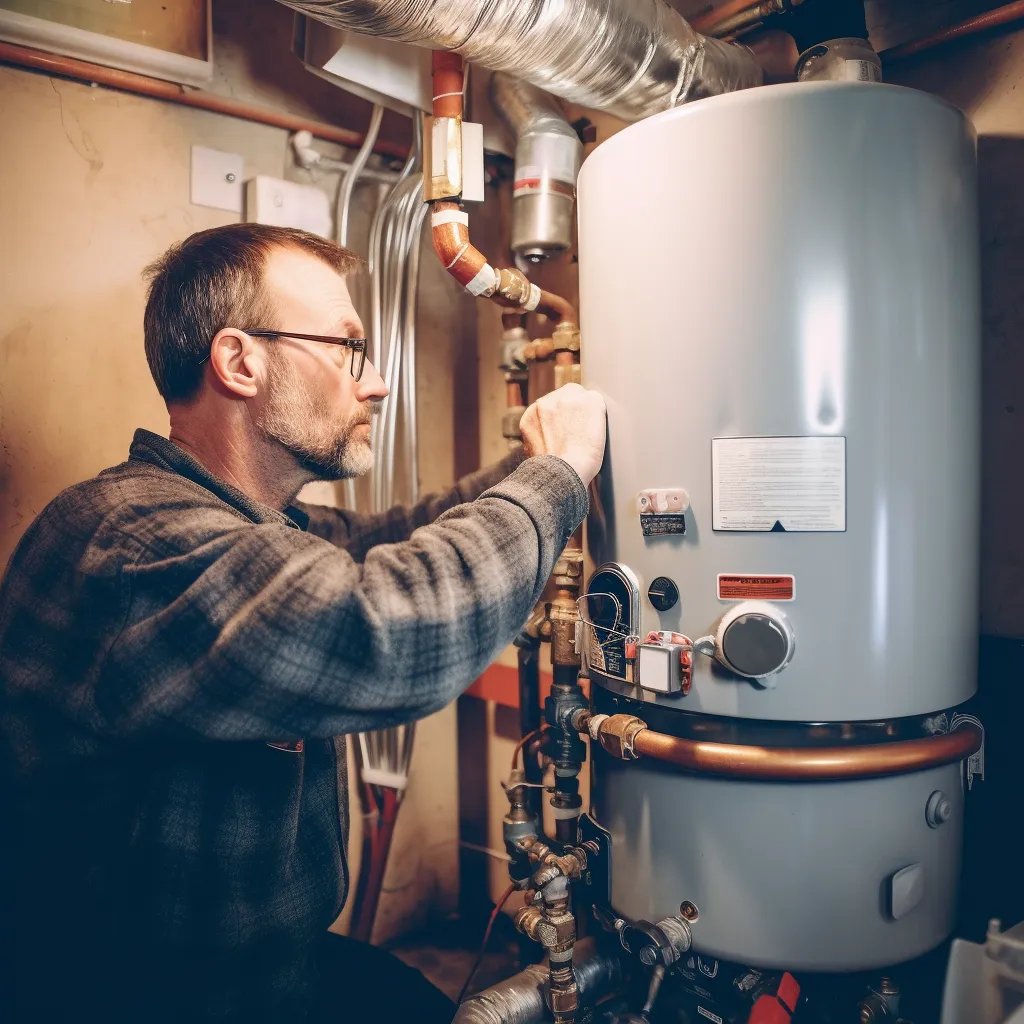
Environmental Impact: The combustion of natural gas emits pollutants into the air, which contributes to the degradation of our atmosphere.
Explosion Hazard: Improper installation or use of gas water heaters may cause explosions. Adherence to safety guidelines is essential to ensure safety.
Expensive Maintenance: Gas water heaters require more maintenance and cost more than electric ones. We suggest scheduling regular inspections and maintenance with a professional.
Extended Installation Time: Installation of gas water heaters takes longer than electric ones. Please allot sufficient time for it to be installed correctly.

Are electric water heaters energy-efficient?
Electric water heaters' efficiency is influenced by unit size, insulation quality, and operating temperature. Although gas-powered ones typically have the edge, electric models are upping their energy efficiency game.

Are gas water heaters energy-efficient?
Save money and energy with gas-based water heaters. These efficient heaters use natural gas to heat your water, consuming less energy than electric models. Efficiency ratings vary based on size, model, and maintenance, but routine tasks like tank flushing and thermostat inspections can maximize savings. Say goodbye to costly electric bills and switch to a more economical option today!
What does it cost to buy and install electric water heaters?
Find the perfect electric water heater for your home! Whether you need a smaller model for a cozy apartment or a larger one for a family home, there are plenty of options available. Prices for a 50-gallon model typically range from $300 to $800. Don't forget to factor in installation costs, which can be anywhere from $300 to $500 depending on your specific needs. Before installing, be sure to assess your plumbing and electrical wiring. Investing in an electric water heater may seem expensive upfront, but the long-term energy savings make it a smart financial choice.

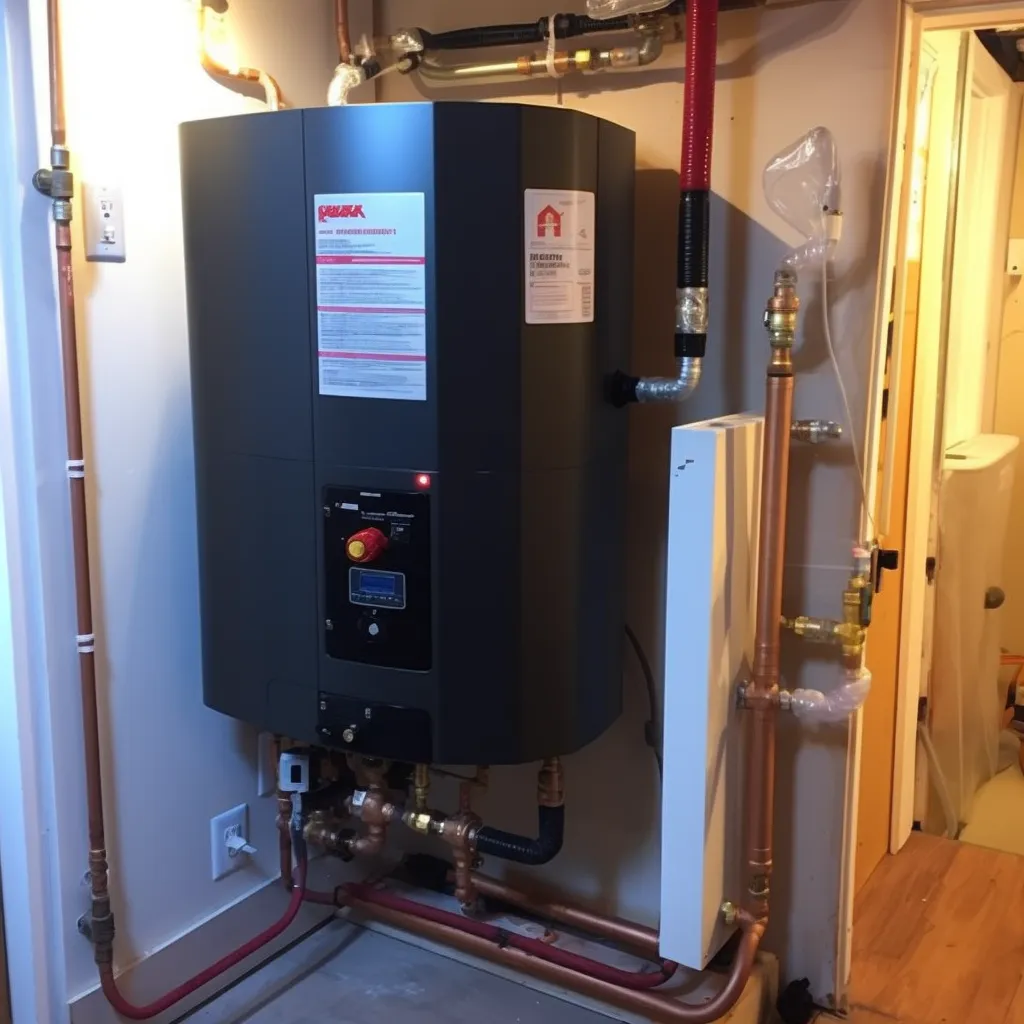
What does it cost to buy and install gas water heaters?
Upgrade your hot water system with a gas water heater, available in multiple sizes ranging from $500 to $1,500. For high-end models, prices can go up to $3,000. Plan for extra installation charges that vary based on location and plumbing. Although the starting cost may appear steep, in the long run, gas water heaters will save you money and result in better energy efficiency. Experience endless, uninterrupted hot water for your daily needs.
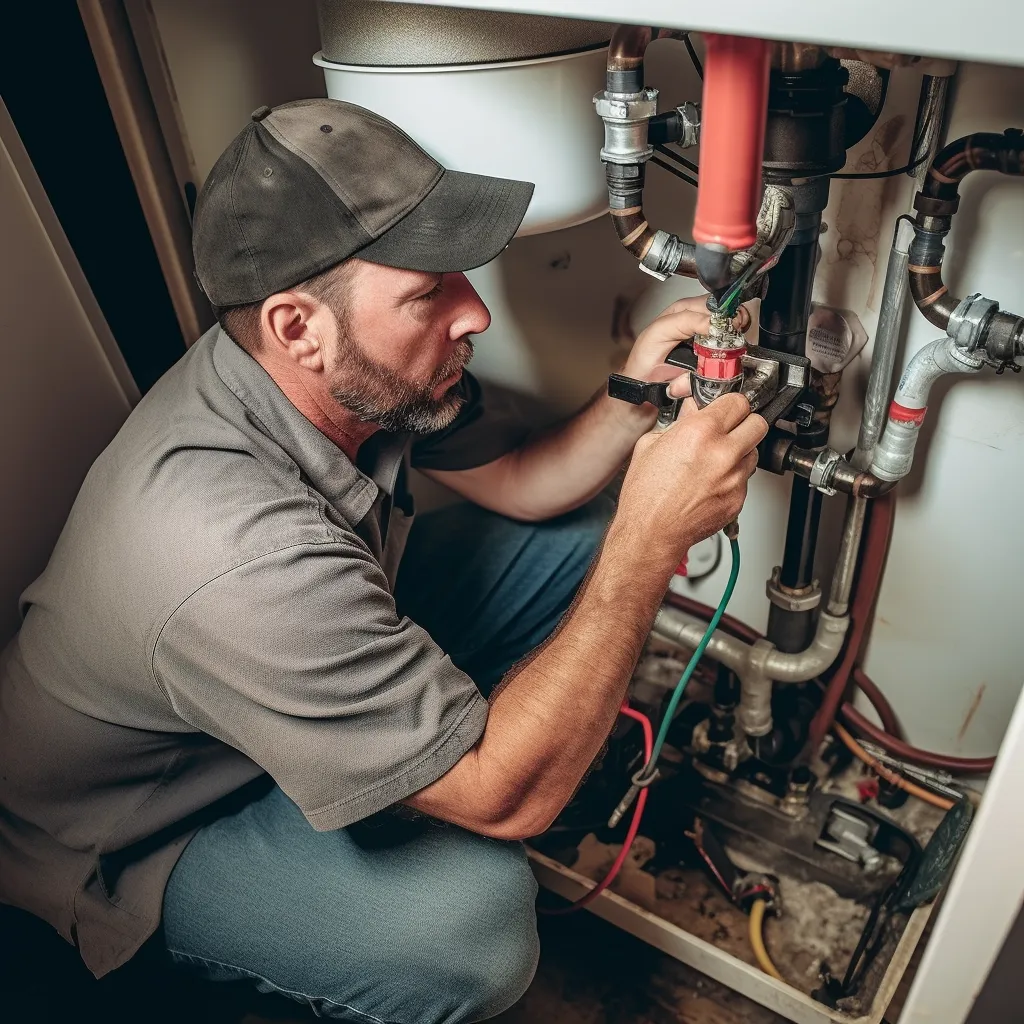
What are the maintenance requirements of electric water heaters?
Get the most out of your electric water heater with simple maintenance steps! Ensure your safety and avoid potential explosions by regularly checking the temperature and pressure relief valve. Experience improved energy efficiency by flushing the tank every six months to a year to prevent sediment buildup. Don't forget to inspect the heating elements and replace them when necessary for optimal performance. Make your life easier with a reliable and convenient hot water supply from your electric water heater.

What are the maintenance requirements of gas water heaters?
Ensure long-lasting performance and safety from your gas water heater by giving it proper annual maintenance. Clear any sediment buildup by flushing the tank annually, regulate the anode rod every couple of years to avert rust, keep track of the burner and pilot assembly, conduct regular temperature and pressure relief valve checks, and watch out for gas leaks. By staying on top of maintenance tasks, you can count on your gas water heater to deliver hot water efficiently for years to come.

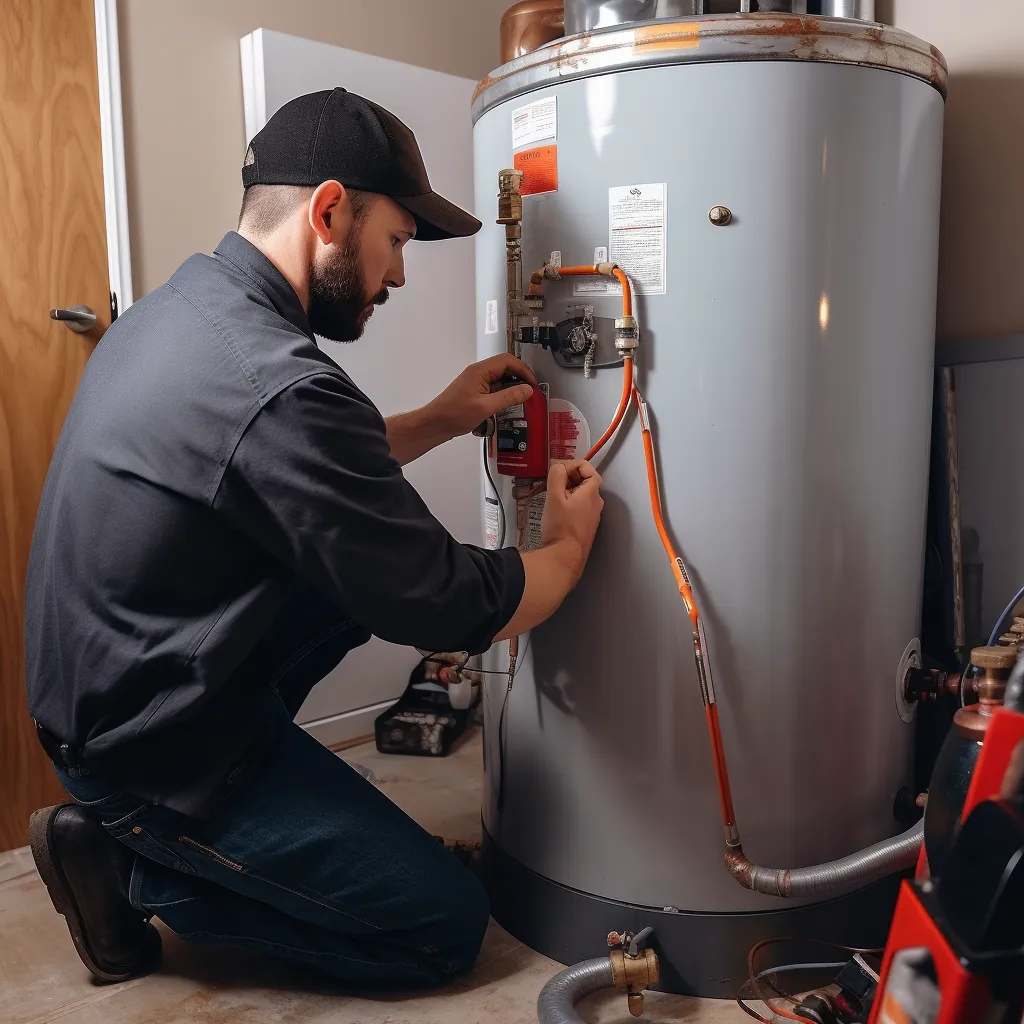
What are the safety considerations of electric water heaters?
If you're looking to heat your home's water with an electric water heater, it's essential to take safety precautions to avoid any potential hazards. One of the primary risks is the possibility of electrocution, especially if the heater isn't grounded or malfunctions. Moreover, your water heater can cause a fire if it overheats or is too close to flammable materials. To prevent any mishaps, make sure to follow the manufacturer's instructions and have a certified professional install your heater. Stay safe and warm with these simple steps!

What are the safety considerations of gas water heaters?
Improperly ventilated gas water heaters can be a serious health risk, as they may leak carbon monoxide - a potentially deadly gas. Stay safe by installing a carbon monoxide detector, scheduling regular maintenance and timely repairs, and keeping flammable materials at a safe distance. Don't store anything on or around your heater to minimize the risk of accidental fires and carbon monoxide leaks.

How to choose between electric vs gas water heater
Choosing a water heater can be overwhelming - especially with so many options like electric and gas available. To make the decision easier, consider these key factors:
Choosing the right water heater for your home is key - take into account size and how often hot water is used.
Electric water heaters cost less initially, but gas heaters may be more cost-effective over time.
Gas heaters run efficiently and have lower operating costs.
Electric water heaters require less maintenance, but routine checks of gas heaters are crucial for safety due to flammable elements.
Consider your impact on the environment - electric heaters produce less emissions and reduce your carbon footprint.
The decision will come down to personal preference and what works best for your lifestyle and budget.
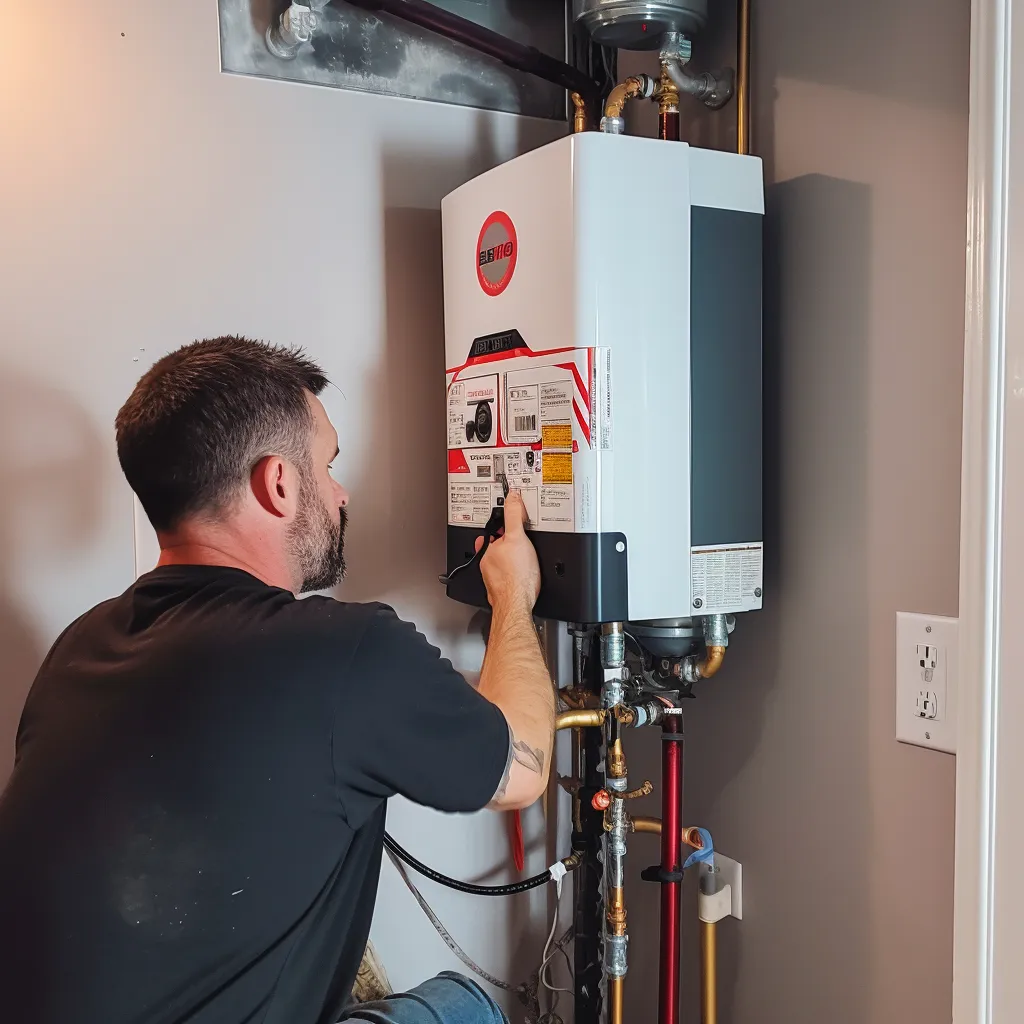
Why you should hire a licensed professional
to install your water heater
Think twice before attempting to install or replace a water heater on your own to save money. It may seem tempting, but the risk of costly and dangerous mistakes is high. Instead, it's best to trust a licensed and experienced professional for this critical task. With a pro, safety protocols will be followed and potential issues identified, providing you with peace of mind. Don't compromise your safety - leave this job to the experts.


Be sure to do your research
Need a new water heater? Don’t make a hasty decision! Take the time to weigh the pros and cons of electric and gas models, and consider safety and installation requirements. A little research could save you lots of money and headaches. But remember, choose your unit carefully and hire a licensed professional to install it safely and securely.
Ready to Solve Your Plumbing Needs?
For reliable, expert plumbing services tailored to the needs of Melbourne and its neighboring cities, look no further than RapidFlow Water Heaters. We’re here for you 24/7, ensuring that your plumbing is always in top condition.
Call us today to schedule your service!
Business Hours: Monday - Sunday, 24 Hours
Phone Number: 321-844-2770
Location: Melbourne, FL, serving all surrounding areas.
Trust your local experts at RapidFlow Water Heaters for professional, timely, and efficient plumbing solutions.
GET IN FULL TOUCH
PHONE: 321-844-2770
EMAIL:
sam@waterheatermelbourne.com
RapidFlow Water Heaters
Melbourne, FL 32901
